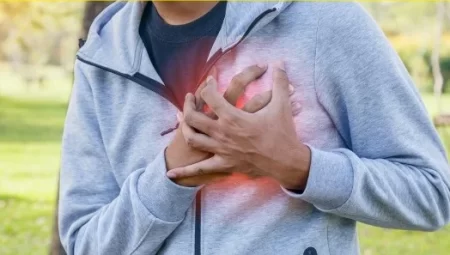
Your heart works as a pump that takes blood to the lungs and then to rest of the body. To have this happen, an electrical system in the heart makes sure it contracts (squeezes) in an organized way.
Any interruption to the electrical impulses that aid the heart in contracting can up shot in arrhythmia. A person with a normal heart should have a heart beat rate in between 60-100 beats per minute when resting.
The more fit, healthy, and active a person is, the lower is his resting heart rate. Athletes, for example, usually have a resting heart rate below 60 beats per minute because their hearts are very efficient.
A number of elements can cause the heart to work in an unorganized.
Arrhythmia causes
Arrhythmia can occur due to blocked electrical signals, abnormal electrical signal pathways, or irritable heart cells that send signals abnormally.
Common causes of arrhythmia (abnormal heart rhythms) are:
- injury from a heart attack in the past
- smoking or other tobacco products
- alcohol
- certain dietary supplements
- excessive coffee consumption
- appetite suppressants
- heart disease like congestive heart failure or coronary heart disease
- hypertension (high blood pressure)
- alcohol abuse
- diabetes
- drug abuse
- hyperthyroidism (an overactive thyroid gland)
- hypothyroidism (an underactive thyroid gland)
- mental stress
- sychotropic drugs that are used to treat mental illnesses
- scarring of the heart – often the result of arrhythmia
- certain herbal treatments
- certain medications such as cold and cough medications
- structural changes of the heart
- electrolyte imbalances in your blood such as sodium or potassium
- healing process after heart surgery
- antiarrhythmics –the drugs that are used to treat arrhythmia can also cause arrhythmia
- beta-blockers for high blood pressure
- cocaine, marijuana and methamphetamines
Genetics
Some arrhythmias are caused by genetic factors. In such cases, the arrhythmia is called as a genetically-linked arrhythmia.
Genetic arrhythmias are considered to be the result of either an inherited characteristic or some sort of genetic mutation.
Coronary artery spasm (Prinzmetal angina)
Coronary artery spasm is a temporary discomfort or pain caused by a spasm or constriction in the coronary arteries. This can block the blood supply to your heart muscle.
Spasms can be very minor or severe in intensity, and can sometimes completely block your coronary artery. This can eventually cause disturbed cardiac rhythms (arrhythmias).
Sometimes, the cause of arrhythmias is not clear.
A healthy and fit person generally does not suffer from long-term arrhythmia unless there is an external trigger. These triggers could be drug abuse, an electric shock etc.






